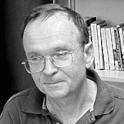Contribution to Book
Evolutionary Literary Study
Handbook of Evolutionary Pasychology
(2016)
Abstract
In the 1990s and early 2000s, much of the work done in evolutionary literary study was polemical and programmatic. Scholars attacked the cultural constructivist ideas prevailing in the academic literary establishment, rehearsed the basic logic of the adaptationist program, and made exploratory efforts to formulate principles of interpretation that could be linked to specifically evolutionary ideas. Over the past decade, polemics and programmatic rehearsals have diminished while literary theory and interpretive literary criticism have matured. Many evolutionists in the humanities argue that basic human motives are channeled into specific cultural norms, that specific cultural norms are articulated in imaginative form through myths, legends, rituals, images, songs, and stories, and that humans universally regulate their behavior in accordance with beliefs and values that are made vividly present to them in the arts. Evolutionary literary scholars aim at analyzing the thematic, tonal, and formal features of literary works; locating the works in a cultural context; explaining the cultural context as a particular organization of the elements of human nature within a specific set of environmental conditions; registering the responses of readers; describing the sociocultural, political, and psychological functions the works fulfill; locating those functions in relation to the evolved needs of human nature; and linking workscomparatively with other artistic works, using a taxonomy of themes, formal elements, affective elements, and functions derived from a comprehensive model of human nature.
Disciplines
Publication Date
2016
Editor
David M. Buss
Publisher
Wiley
DOI
10.1002/9781119125563.evpsych248
Citation Information
Joseph Carroll. "Evolutionary Literary Study" 2Hoboken, NJHandbook of Evolutionary Pasychology Vol. 2 (2016) p. 1103 - 1119 Available at: http://works.bepress.com/joseph-carroll/5/
